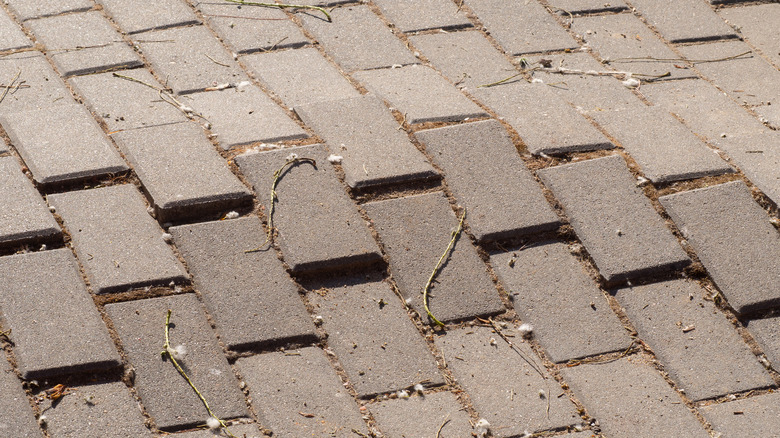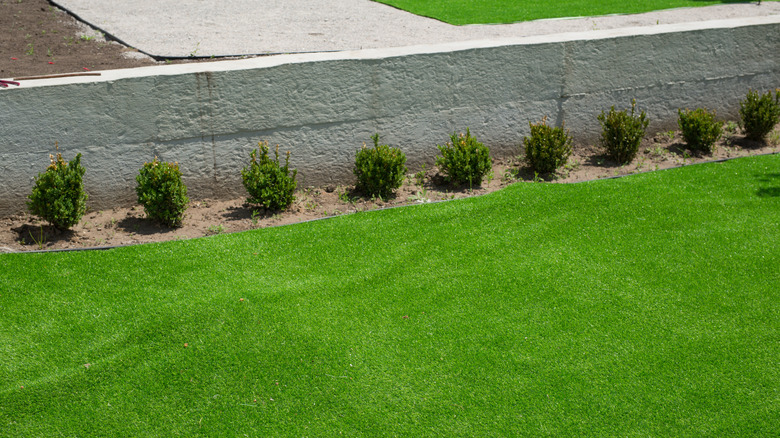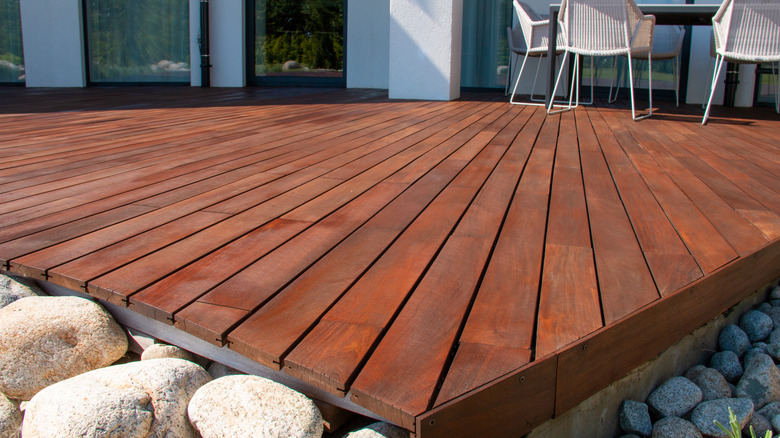Outdoor Flooring Options To Consider When Working With An Uneven Surface
When beginning an outdoor renovation project, particularly one involving landscaping or creating outdoor living spaces, homeowners and designers frequently encounter the challenge of dealing with uneven surfaces. Uneven ground can result from natural terrain variations, ground settlement, or previous construction work. However, this does not mean achieving a beautiful and functional outdoor area is out of reach. The array of outdoor flooring options depends on your preferences and needs, offering everything from flexible to more permanent solutions.
For instance, PVC Deck tiles, artificial grass, and pea gravel would be flexible, making them ideal for quickly addressing uneven surfaces without extensive groundwork. Meanwhile, poured concrete and elevated wood decks would provide an enduring foundation for those seeking long-term results. Despite their differences in permanence and installation complexity, each option remains adaptable, ensuring they can accommodate the challenges posed by uneven terrain while enhancing the area's visual and functional appeal.
One of the most popular and affordable options is PVC Interlocking deck tiles. These deck tiles are perfect for uneven surfaces due to their ease of installation and versatility. PVC deck tiles are designed to lock together without the need for adhesives, nails, or screws, meaning they can adjust to slight variations in the ground level. Moreover, they are available in various colors and patterns. However, while the ground beneath may remain uneven, using deck tiles will create a more stable and level surface above it. This approach allows for a functional outdoor area without the need for extensive ground leveling.
Versatile flooring solutions for every need
Artificial grass is another excellent option for uneven grounds, providing a year-round green appearance with little to no maintenance. However, this is only suitable so long as the ground is a slope; therefore, it should be avoided if there are dips or holes. The benefits of artificial grass include durability, being pet-friendly, and providing an inviting texture underfoot, making it a popular choice for family gardens and recreational areas. It's also available in tile form! This would be an excellent option for those with a smaller surface area. It's also important to note that the degree of unevenness, steep or slight, will affect the complexity of installation. Still, it is possible, just like the final level of a mini-putting golf course.
Last on this list of more flexible and straightforward fixes is pea gravel. Its small, smooth stones easily conform to the natural contours of the ground, making it an excellent choice for landscaping projects on uneven terrain. This adaptability allows for quick and easy installation over irregular surfaces with minimal preparation. Beyond its functionality, pea gravel gives a textured look and is available in various colors and sizes to match different design preferences. It also provides superior drainage, preventing water accumulation and promoting a healthy outdoor environment. However, despite its many advantages, pea gravel does have its kryptonite. Due to its lack of stability in high-traffic areas, your outdoor flooring is temporarily uneven as the gravel shifts underfoot, bringing you back to square one.
Embracing elevation, durability and avoiding pitfalls
For significantly uneven surfaces, constructing an elevated structural wood deck offers a practical and aesthetically pleasing solution. These decks stand on adjustable supports, making it possible to level the structure above uneven terrain. This addresses the issue of uneven ground and introduces an appealing architectural feature to the outdoor area. While elevated decks demand detailed planning and construction, they allow for extensive customization in design and materials.
The same goes for poured concrete. Concrete provides a lifetime-lasting solution for any uneven outdoor area, as it can be molded and leveled to achieve a smooth, flat surface. Despite its more demanding installation process and the need for professional help, poured concrete stands out for its durability and low maintenance. It can also be modified through stamping, coloring, or texturing, offering versatility for outdoor environments. They are also stain-resistant, making maintenance a breeze.
Choosing the right flooring solution for uneven surfaces requires consideration of the project's specific needs and objectives. For every situation, there's a suitable flooring choice; it's essential to understand both your preferences and the options to avoid. For example, steer clear of materials like porcelain or ceramic tiles for uneven areas, as their rigidity makes them prone to cracking. Similarly, natural stone is more vulnerable to cracking and should be used cautiously on uneven surfaces despite its durability. By thoughtfully evaluating each flooring type, homeowners can transform an uneven outdoor space into a functional, even, or uneven outdoor haven.


